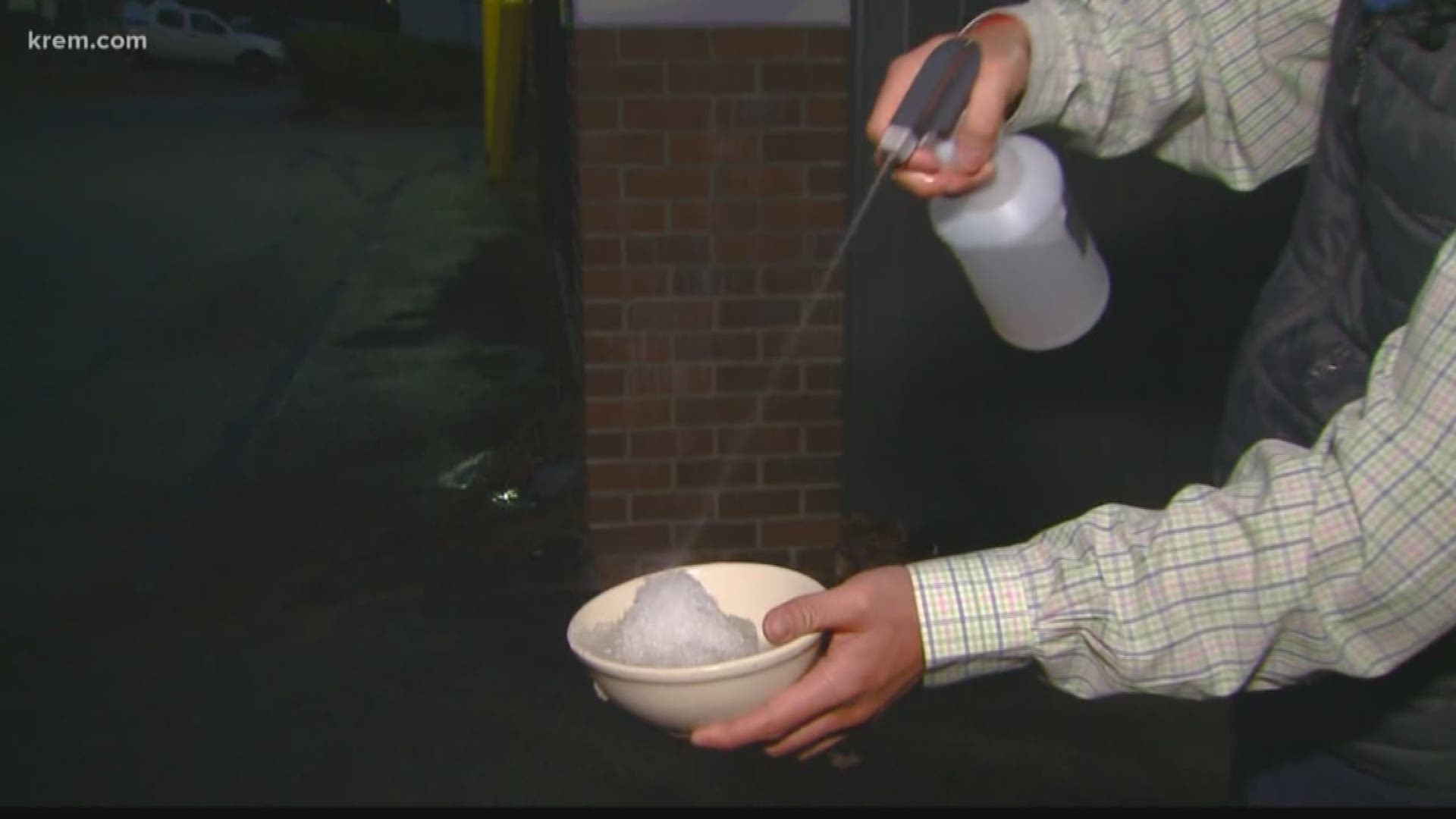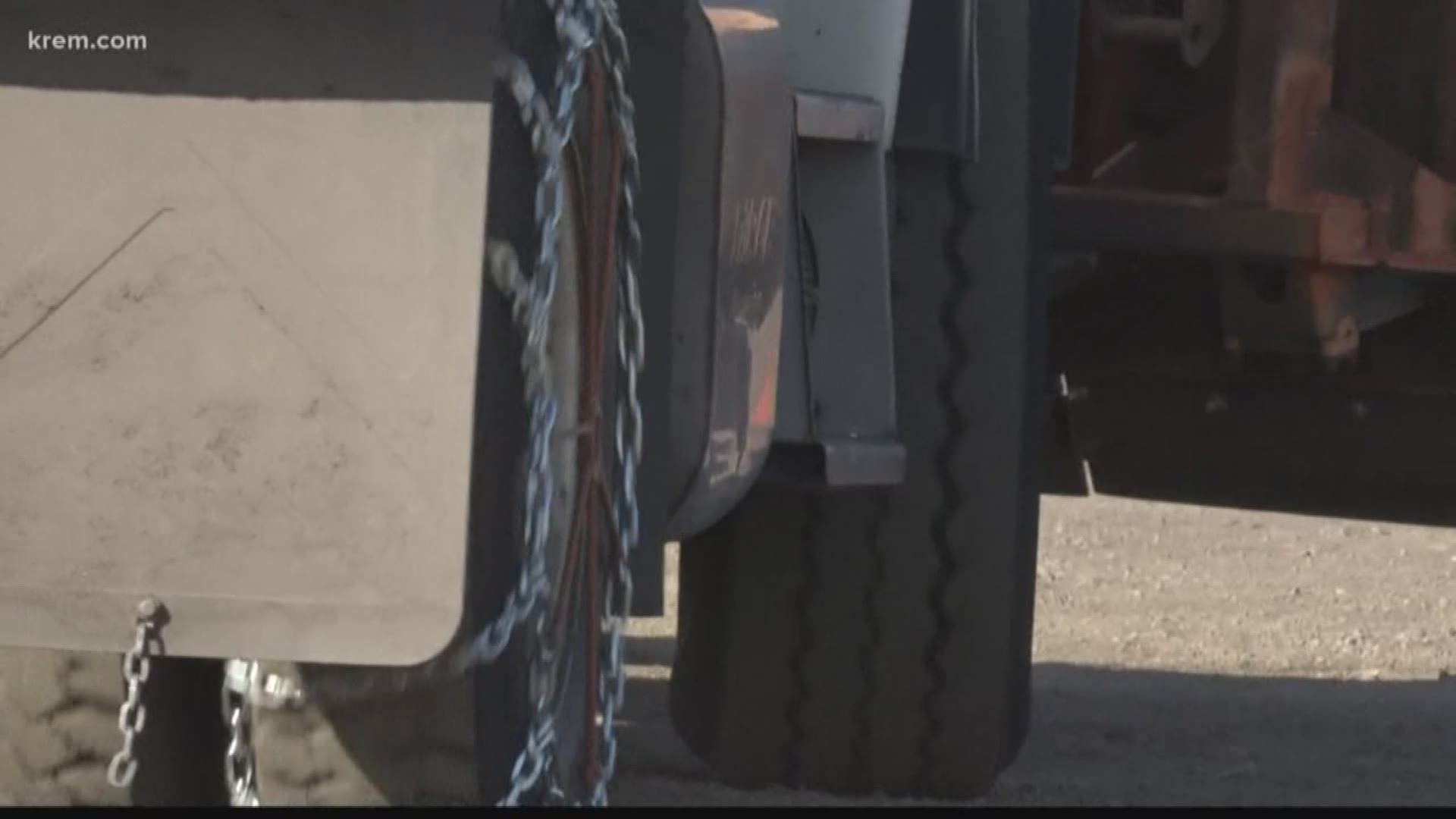SPOKANE, Wash. — There's no snow on the ground in Spokane right now but conditions can change rapidly during this time of year.
That's why local agencies are watching conditions closely and preparing roads to make sure they're safe for drivers.
For the most part, some sort of salt-mixture is used, but because the Inland Northwest region is so diverse, some agencies use different methods depending on the conditions.
KREM reached out to the City of Spokane, the Washington Department of Transportation and Spokane County to see how they treat roads to make sure they're safe to drive on when there's wintry weather in the area.
City of Spokane:
- Top priority is areas where people are more likely to slide such as hills and bridges.
- They use a liquid deicer called magnesium chloride
- Treatment is primarily done on main roads and arterials.
- Residential areas are not treated with magnesium chloride partly due to costs
- A blue granular product is also used when it gets really cold
Washington Department of Transportation:
- Top priority is I-90, secondary highways and state routes
- When winter weather hits, it’s all hands on deck
- They also use magnesium chloride to pretreat roadways
- WSDOT says magnesium chloride is better for them because just salt can bounce off the road
Northern counties where it gets a little colder also use a salt and sand mix to add more traction
Spokane County:
- Spokane County Public Works is responsible for more than 5,200 miles of road
- Snow event priority routes:
- Emergency Routes and Primary Arterials
- Secondary Arterials
- Residential (hilly terrain)
- Residential (flat terrain)
- How road surfaces are treated depends on the following:
- Temperature
- Moisture content
- Wind speed
- Road surface
- Traffic volume
- Weather conditions
- Depending on the conditions listed above, crews will:
- Clear snow (Plows or Graders)
- Apply liquid deicer (Ice Slicer or Ice Kicker)
- Apply sand mixed with granular deicer (Sodium Chloride, Calcium Chloride or Magnesium Chloride depending on the temperature)
- Crews work with the Spokane County Sheriff’s Office in identifying “trouble spots”.
- During a major snow event, crews will work 24/7 in 12-hour shifts.


